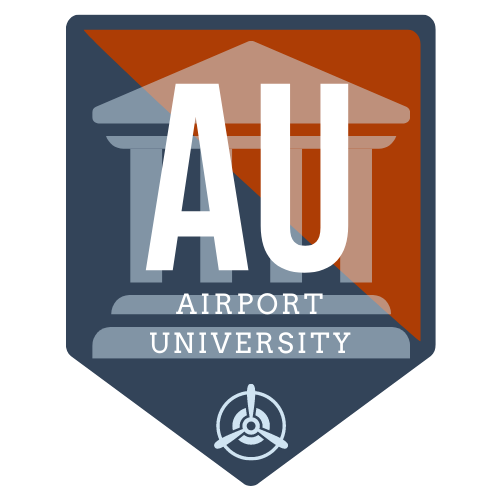Concessions
Passengers have needs while at airports. Concessions and retail often fill that need. Airports provide the passengers, the retailers provide the services.
Concessions are typically leased with a percentage type lease so that a specific percentage of gross sales are given to the airport as part of their lease agreement. To go along with that, concessions are often subject to Minimum Annual Guarantees (MAG). A MAG is guarantees the airport sponsor a minimum amount of money from the concession, in the event they do not generate much revenue.
Concessions covers more than what you think of served at a traditional concession stand. Products and services both fall into the concessions category. Examples of concessions within airports include:
- food and beverage
- retail stores
- newsstands
- showshines
- car rentals
- Fixed-Based Operators (FBO)
Various Concessions Lease Types
Direct
A direct concession lease involves the space being directly marketed, leased, and managed by the airport operator. With standard concession management programs, the airport operator assumes all of the risk for leasing the property but stands to profit the most by receiving a larger amount of generated revenues. In the event that the concessionaire is unsuccessful, the airport absorbs the losses.
Developer
A third party company could be contracted to handle the leasing and management of concessions on behalf of the airport. A third party can absorb some of the liability and risk from the airport operator. However, it does reduce the potential benefit to the airport by splitting the proceeds generated.
The entire concessions space is typically leased out to a single company who is responsible for subletting the spaces. The develop pays the amount due to the airport through the lease agreement and pockets the rest. Very hand’s off for the airport sponsor. Some airports have had huge success in meeting ACDBE goals with the developer model.
Master Operator
A master operator, or sometimes referred to as an institutional operator, serves as a master lessee and either provide or sublease concessionaires for the airport. Similar to a third party option, an institutional operator can reduce risk while also reducing proceeds to the airport operator. Master operators are common options, such as HMS Host Int’l, Paradies Lagardere, Delaware North, and SSP.
The master operator concept typically limits the ACDBE participation goals and may require additional efforts to maintain. The actual process is the easiest for the airport sponsor since there are minimal contracts. The concept is not uncommon.
Other Concessionaires
There are several types of concessionaires that lease space to operate at the airport. Providing a product or service inside the airport environment is one of the key qualifiers for a concessionaire. Here are some others.
Car Rental Companies
Car rental companies are concessionaires at the airport. They rent space to provide a service/product (rental car) for an agreed upon time frame at a certain rate. They will typically lease space for counter and office space and additional space for the vehicle storage. Additionally, car rental companies will usually be required to pay the airport a Customer Facility Charge (CFC). The CFC is a charge based on either the contract value, gross receipts, or per car per day. While the leased space is non-aeronautical revenue, the CFCs are non-operating revenue.
Fixed Based Operator
Fixed Based Operators or FBOs, are service providers to many GA and corporate aircraft. In addition, they typically provide the fueling services for the airport. Some airports have just a single FBO while others have multiple. It varies based on the size, capacity, and operations of the airport.
The FBOs lease space from the airport sponsor to be able to provide those services. They will typically also offer a percentage of their gross receipts to the airport as part of the RFP for the FBO services. FBOs may collect the landing fees for GA aircraft or charge them a fuel-flowage fee on behalf of the airport.
Airport Concessions Disadvantaged Business Enterprises
Airports maintain goals of working with Disadvantaged Business Enterprises or more commonly referred to as DBEs. In the concessions arena, they are referred to as Airport Concessions Disadvantaged Business Enterprise (ACDBE). The intent of DBE programs is to increase the amount of business done with Minority Business Enterprises (MBE) and Women Business Enterprises (WBE).
The FAA helped to level the playing field by allowing DBEs to compete for concessions contracts in airports. 49 CFR Part 23 requires airports to have a concessions-based DBE program. The FAA regional office must approve if the airport receives federal funding and is a primary airport with commercial service and the revenue generated by concessions exceeds $200,000. [1]https://www.law.cornell.edu/cfr/text/49/part-23
The entire premise of the DBE program is based on:
- To ensure nondiscrimination in federally funded contracts for DOT airport assistance programs.
- To level the playing field so that DBEs can compete .
- To ensure that the program is performed in accordance with law.
- To ensure that firms meet the requirements of DBE qualification.
- To remove barriers in participation of DBEs.
- To promote the use of DBEs for federally funded projects.
- To help develop firms that can compete in the marketplace outside of the DBE program.
- To provide flexibility to recipients of federally funded projects in providing opportunities to DBEs.
References
| ↑1 | https://www.law.cornell.edu/cfr/text/49/part-23 |



2 thoughts on “Concessions Development”